Reply To:
Name - Reply Comment
Last Updated : 2024-04-19 14:00:00
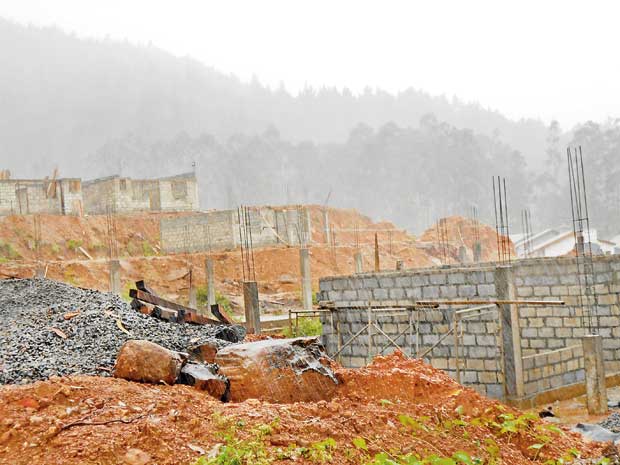
 tenuous hopes for peace and development” – Shelter from the Storm
tenuous hopes for peace and development” – Shelter from the Storm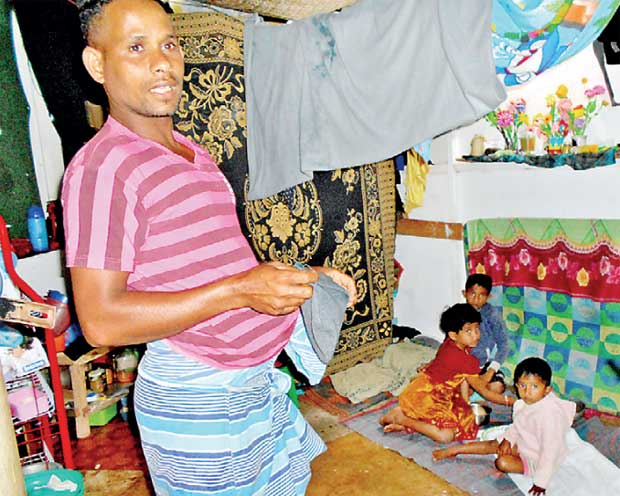
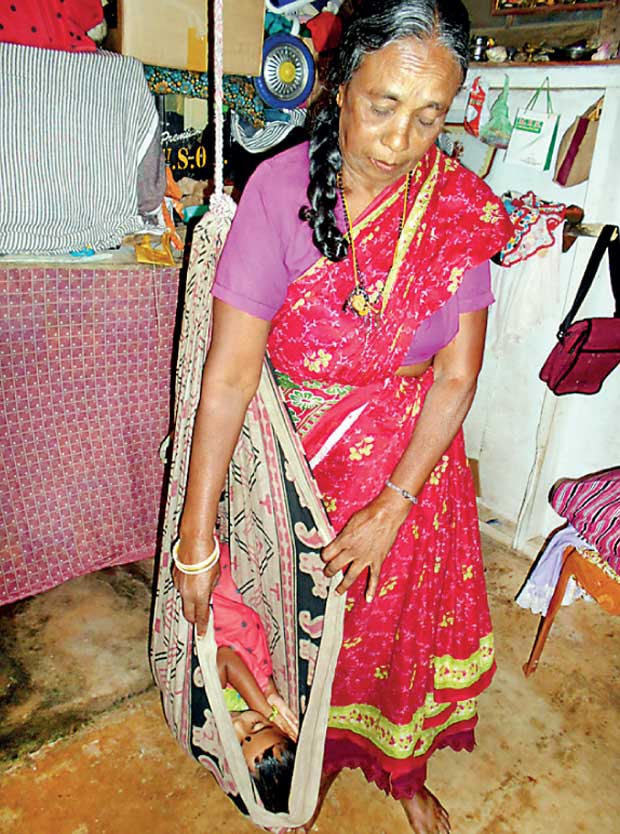

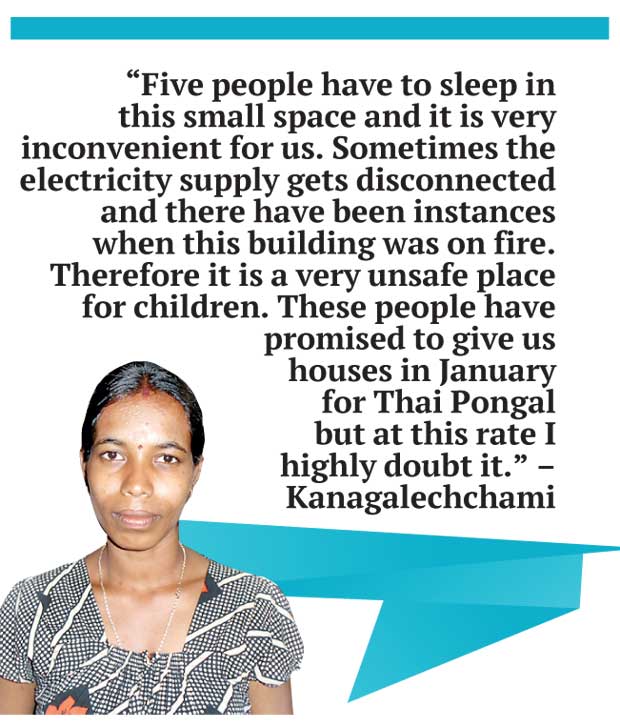
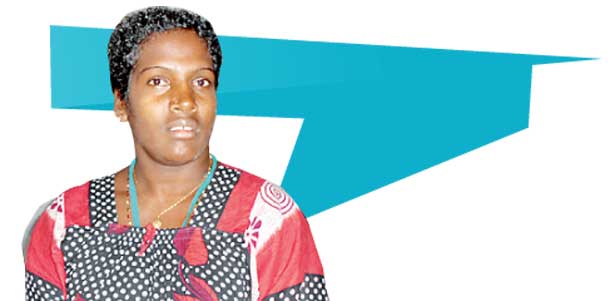 “There are 6 people in my family; at the time of the disaster I was abroad. However I came back within 20 days and found my family. We were treated badly from the beginning. Today, although we live here we are facing many problems. For example the toilet pits are overflowing and the children have to live in very unhygienic conditions. After some time the owner of the estate was diagnosed with dengue and then the Public Health Inspectors (PHIs) came here and went on a full inspection. We also contracted diseases such as chicken pox, flu and other illnesses but not a single PHI came here initially. But everybody gets royal treatment except for us. The weekly coupon is also not sufficient for us at times. For those doing a job this may not be critical, but many of us are unemployed.” – S. Kalaimagar |
So far we haven’t received any complaints: Nimal AbeysiriIn order to find out what action has been taken to relocate these victims, the spoke to Daily Mirror Nimal Abeysiri, the District Secretary of the Badulla district. In his comments, Mr. Abeysiri said that these victims obviously have to go through many hardships. “We are doing everything within our capacity to  provide them with good living conditions. Actually speaking, the facilities and aid they receive at the camp are far better than what they had. The people involved in politics who give many promises leave them with high hopes. There is so much we can do. We are only coordinators and we do our best. So far no one has come to us complaining about anything.” Having asked about the delay of the resettlements, Mr. Abeysiri told that the constructions are not easy, especially in these areas. They have been delayed due to reasons that are beyond our control. The boulders have to be cracked in order to make space for the construction, and that should be done using chemicals and huge machines. It is a long process. We have completed building 47 houses. Hopefully by March 2016, the resettlements will be complete. These houses are luxuries compared to what the affected people had because they comprise of tiled bathrooms, double rooms, kitchens, proper water supply and other amenities.” provide them with good living conditions. Actually speaking, the facilities and aid they receive at the camp are far better than what they had. The people involved in politics who give many promises leave them with high hopes. There is so much we can do. We are only coordinators and we do our best. So far no one has come to us complaining about anything.” Having asked about the delay of the resettlements, Mr. Abeysiri told that the constructions are not easy, especially in these areas. They have been delayed due to reasons that are beyond our control. The boulders have to be cracked in order to make space for the construction, and that should be done using chemicals and huge machines. It is a long process. We have completed building 47 houses. Hopefully by March 2016, the resettlements will be complete. These houses are luxuries compared to what the affected people had because they comprise of tiled bathrooms, double rooms, kitchens, proper water supply and other amenities.” |
We need to consider more about the sanitary facilities of women and children: Shamila DaluwatteSpeaking to the Daily Mirror, Attorney-at-law and women’s rights activist Shamila Daluwatte said that in  most instances women and children have to face many inconveniences when it comes to a natural disaster. “While distributing lunch packets and other relief items, people should also consider about the sanitary facilities available to women and children. Therefore, other items such as sanitary napkins, towels and clothes should also be distributed. When these people are displaced they often have to stay together in a hall or other place until they are relocated. This is another situation that we need to look at. Sometimes both men and women will have to use washrooms in close proximity and also take a bath from a common well. This in turn will increase the chances of women being vulnerable to sexual harassment. In addition to that they should be given access to clean water and other needs in order to ensure that they are under good living conditions.” most instances women and children have to face many inconveniences when it comes to a natural disaster. “While distributing lunch packets and other relief items, people should also consider about the sanitary facilities available to women and children. Therefore, other items such as sanitary napkins, towels and clothes should also be distributed. When these people are displaced they often have to stay together in a hall or other place until they are relocated. This is another situation that we need to look at. Sometimes both men and women will have to use washrooms in close proximity and also take a bath from a common well. This in turn will increase the chances of women being vulnerable to sexual harassment. In addition to that they should be given access to clean water and other needs in order to ensure that they are under good living conditions.” |

Add comment
Comments will be edited (grammar, spelling and slang) and authorized at the discretion of Daily Mirror online. The website also has the right not to publish selected comments.
Reply To:
Name - Reply Comment
On March 26, a couple arriving from Thailand was arrested with 88 live animal
According to villagers from Naula-Moragolla out of 105 families 80 can afford
Is the situation in Sri Lanka so grim that locals harbour hope that they coul
A recent post on social media revealed that three purple-faced langurs near t